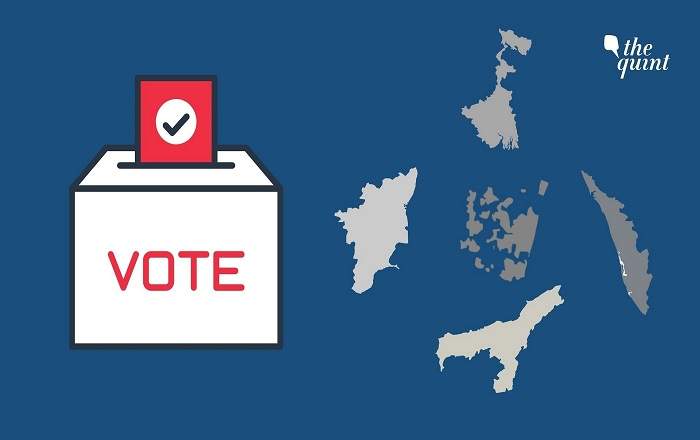Though apparently the eight-phase Assembly election in West Bengal is, according to critics, hampering the work to fight the menace of corona virus the truth is that the polling process is far from over in the rest three states—Assam, Tamil Nadu and Kerala—as well as the Union Territory of Puducherry too.
True, polling came to end on April 6 in these places yet the fact is that counting—in itself a big task in these days of pandemic—would take place on May 2. So, if the state administrative machinery is fully involved in the election work till May 2 in West Bengal, in rest four places too they are not completely free.
Besides, legally the state government might have the power to take decision to tackle emergency-like situation—as in the case of fighting COVID-19—morally and practically it is not so easy. The permanent executive, that is bureaucracy, usually do not pay much heed to the order of powerless political executive, especially when they get an idea that it is going to lose the election.
The example of Kargil War is often cited in this situation. The news of infiltration started pouring in a few weeks after the then Atal Bihari Vajpayee government lost the trust vote on the floor of Parliament on April 17 after the AIADMK withdrew support. The operation against the infiltrators soon started and within a couple of months everything was normal as the enemies were pushed out of India by July 26. The Vajpayee government got full support of all the political parties in this military campaign.
But the situation in 1999 was somewhat different. Though the Vajpayee regime had lost the confidence vote on April 17, the five-phase election started on September 5 and ended on October 3.
In contrast a major health crisis had emerged even before the announcement of election dates by the Election Commission on February 26. Corona started knocking at the door of the country once again by early February. The states of Kerala and Tamil Nadu, along with some others, started reporting a number of cases of the pandemic. The Gujarat chief minister Vijay Rupani fainted at a public place on February 14 and a day later was tested corona positive. This was 10 days before the inaugural Test match at Narendra Modi Stadium in Ahmedabad on February 24 against England. President Ramnath Kovind inaugurated this world’s largest cricket stadium which has a capacity of 1.10 lakh.
The truth is that like everyone even the Election Commission failed to anticipate that corona would return so vociferously.
Midway, it may really be difficult to club together the rest three phases of elections in West Bengal but had the Election Commission been a bit alert and well prepared it would certainly have finished the polling by April 6 and announced the result by April 10. After all it is the same Election Commission which had conducted the Lok Sabha election in the entire country in almost the same period in 2019. Then where was the need to prolong the process in just one state?
In Bihar too, the three-phase election was held on October 28, November 3 and 7 and the results were declared on November 10. Bihar too is not an easy state so far conducting the election is concerned. Perhaps counting of votes is no less cumbersome exercise in this era of pandemic. It involves the gathering of a large number of officials, employees, party workers and many others in closed places where the possibility of the spread of COVID-19 is much higher, especially when the hall is air-conditioned and not properly ventilated.
Till the new government takes charge in these four states and one Union Territory the challenge ahead is much more difficult than in those places where there is no election.
Soroor Ahmed is a senior journalist based in Patna. The views expressed are personal.





